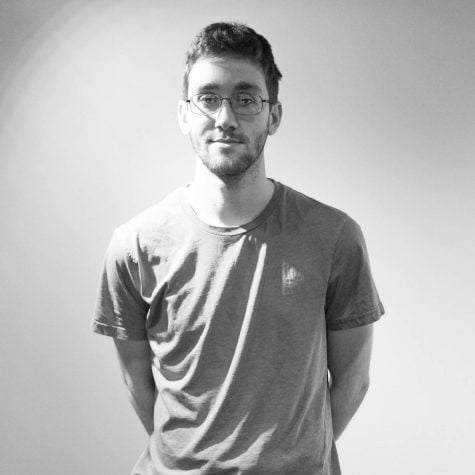It is hard to find an aspect of modern life that has not been touched by terrorism.
If you go to an airport in the United States, the Transportation Safety Administration will meet you at the door. If you attend a packed public event, the police will certainly be roaming the crowd, surveying for possible danger. Even entertainment is not spared, from “Homeland” to “American Idiot” to “Dear John.”
Everyone knows what terrorism is. However, we only understand it in terms of “I’ll know it when I see it.”
“There are over 100 definitions (for terrorism),” said Assistant Professor of Political Science Robert Duncan. “Not even the federal government can agree on one.”
Agencies and organizations at home and abroad have different parameters to qualify what is and is not terrorism. Many definitions share common threads.
In the syllabi that Duncan uses in his classes on terrorism, he notes the majority reference “violence and force,” “political ideology” and “terror and fear.” Less than half mention things like “threats,” “psychological effects or reactions” and “planning and organization.”
According to Bruce Hoffman, professor and director of the Center for Security Studies at Georgetown University, there is a simple reason why there is no single definition.
“The bottom line is it depends if you identify with the victims, then it’s terrorism,” said Hoffman to The Guilfordian in a phone interview. “But if you sympathize with the cause of the perpetrators, then it’s something else like a war of liberation or guerrilla warfare or something more anodyne.
“I think the point is that ‘terrorism’ is universally seen as a negative word with pejorative connotations. Therefore, it’s become a very emotionally laden word that people use to describe things that they don’t like or that they’re horrified by or that they’re abhorred by.”
Terrorism itself is nothing new.
“It’s a phenomenon that’s been around since Cain and Abel,” said Duncan.
History is littered with examples, from the Sicarii of first-century Judea to the Sons of Liberty of 18th-century Colonial America. In the Post-9/11 world, religiously motivated groups like al-Qaeda and the Islamic State group have seized the spotlight.
Regardless of motivation, the number of terrorist incidents has risen in recent years.
The RAND Corporation, where Hoffman once acted as director of the Center for Middle East Public Policy, catalogued over 40,000 cases of terrorism between 1969 and 2009. The Global Terrorism Database identified more than 140,000 incidents from 1970 to 2014. Both datasets indicate a spike in attacks during the last 15 years.
“It’s one thing to picket and protest,” said Duncan. “It’s another to blow yourself up for a cause. The media is very complicit, I think.”
Many of the conversations following the high-profile attacks in Paris and Brussels involve the role that news organizations play when reporting on terrorism.
Around-the-clock coverage can heighten awareness for a terrorist group’s cause and overwhelm readers and viewers. This, to Duncan, is dangerous.
“Familiarity breads contempt or apathy,” he said. “The media needs to exert some sort of control or judgment on what they report. People will become just immune to it. The novelty will wear off.”
Critics also point out the biases imbedded in covering attacks in Western nations. To some, the intense attention paid to sporadic attacks in Europe overshadows attacks and bombings that have recently occurred in Cameroon, Nigeria, Turkey, Lebanon and Pakistan.
There are some explanations for the disparity in coverage.
Hoffman attributed Western media’s predominance in the world as a factor. Charles J. Johnson, the digital news editor of the Chicago Tribune, shifted some of the blame onto readers.
“Don’t get me wrong: We will cover the important news whether or not it attracts a large audience online,” wrote Johnson. “But reader interest does help shape the size of the spotlight we offer to certain stories.”
At the heart of the matter remains a simple thing: the innocent people caught up in acts of terrorism. With lives at stake, negotiating with terrorists is almost out of the question.
“You can’t just bomb your way to the conference table,” said Hoffman. “You have to show a lasting commitment to peaceful change and to negotiation rather than violence, which would mean basically unilateral disarmament. I don’t see a lasting peace predicated on anything else.”
When asked if we could achieve a terror-free world, Hoffman was not so optimistic.
“No, just like we’re never going to achieve a cancer-free world or a world where there’s no car crashes or a world where there’s no poverty or a world where there’s no illiteracy,” he said. “But that doesn’t mean that struggling to achieve all these ends are not important and noble goals. We just need to be realistic about our expectations.
“We’re never going to completely eliminate terrorism, but I think we can reduce the threat of terrorism to a very local level, as opposed to the regional, transnational and even international dimensions that it continues to exist today.”







